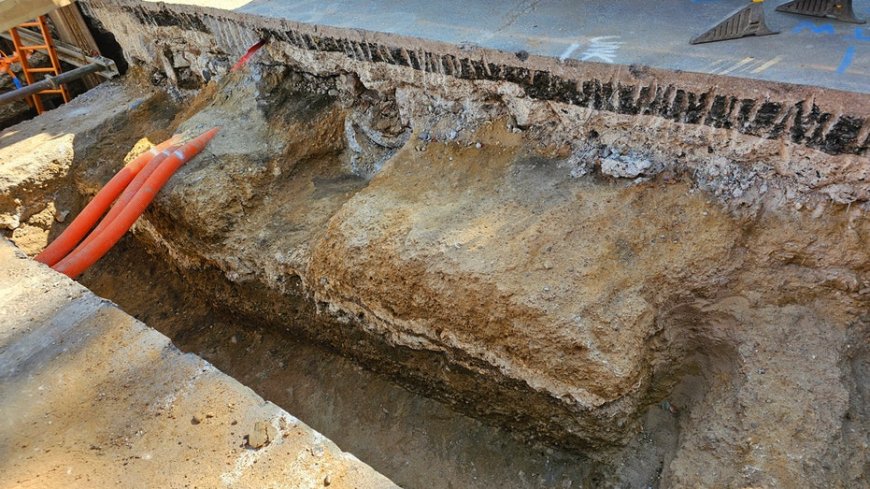2,000-year-old Roman road discovered by archaeologists in London
An ancient Roman road was recently discovered by archaeologists in London. The 2,000-year-old road was located beneath modern-day Old Kent Road.

During excavations amid the early stages of expanding low carbon heating to thousands of homes along Old Kent Road in London, archaeologists found physical evidence of an ancient Roman road.
Wating Street was built closely following the Roman invasion of Britain in AD 43, according to a Wednesday press release from the London Borough of Southwark.
Prior to this discovery, there was very little evidence to support the exact route of the ancient Roman road.
12-YEAR-OLD-BOY STUMBLES UPON STUNNING ANCIENT FIND WHILE WALKING DOG IN ENGLAND: ‘RELATIVELY RARE’
With the shared characteristic of Roman roads traditionally being straight, archaeologists believed they knew where the ancient road would be.
Sections of the 2,000-year-old route were uncovered by a team of archaeologists from the Museum of London Archaeology (MOLA), working on behalf of Veolia and archaeological consultants RPS, A Tetra Tech Company, beneath modern day Old Kent Road, according to the press release.
"The discovery of an intact section of Roman Wating Street directly under the current Old Kent Road has redrawn the Roman road map for Southwark and informs on Roman construction techniques generally. It is a key finding for archaeological research for London," said Gillian King, director of archaeology at RPS, per the release.
RARE TOOL DATING BACK 3,500 YEARS FOUND IN THE UK
The section of the ancient Roman road was well-preserved, with distinct layers observable, helping experts to better understand its construction.
The road measured 5.8 meters (about 19 feet) wide and 1.4 meters (about 5 feet) high.
Its construction was completed using a solid foundation of gravel sealed by two layers of chalk, and another layer of compacted sand and gravel on top, according to the press release.
"It’s amazing this section of road has survived for almost 2,000 years. There has been so much activity here over the past few hundred years, from sewers to power cables, tramlines and of course the building of the modern road, so we’re really excited to find such a substantial chunk of Roman material remaining," Dave Taylor, MOLA project manager said, according to the press release.
The discovery will be signified with a sign close to Old Kent Road Bridge.


























































